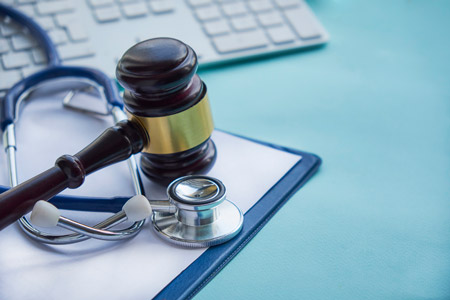


Common Myths and Misconceptions About GLP-1 Medications
If 2024 had a breakout star pharmaceutical product, it would be the class of drugs known as GLP-1 medications. Through tabloid rumors of celebrity weight loss using GLP-1s and patients giving their real, lived experiences taking these medications on platforms like TikTok, GLP-1s have drastically risen in the public’s consciousness. With this increased awareness of the game-changing medication, there has also come lots of misinformation, misconceptions, and myths.
In this article, we’ll explore some of the most common myths and misconceptions around GLP-1s and share the science behind how these drugs work.
Firstly, it’s important to understand how GLP-1s work. GLP-1 medications mimic glucagon-like peptide-1, a naturally occurring hormone in our bodies that helps regulate blood sugar levels. These drugs help lower blood sugar levels by stimulating insulin release and inhibiting glucagon secretion. Additionally, they slow down gastric emptying, leading to a more gradual absorption of glucose, and reduce appetite — all of which aid in weight loss.
With the science out of the way, let’s address the truth behind some of the most frequently mentioned rumors about GLP-1 drugs.
Myth: GLP-1 Medications Cause Severe Side Effects in All Users
GLP-1 drugs can be positively life-changing for many patients and lead to improved health outcomes. That being said, every single medication on the market comes with side effects.
The most common side effects associated with administering GLP-1s include:
- Nausea
- Vomiting
- Diarrhea
- Constipation
While many patients can experience some of these side effects, not everyone will. It’s incredibly personal to each patient how they will react and some patients have no noticeable side effects to using GLP-1 medications. If you start GLP-1s and have these side effects to an extreme point, or experience severe abdominal pain, the inability to have bowel movements or pass gas, and notice your skin is jaundiced, or yellow tinted it’s important to contact medical help immediately.
Even if you experience less serious side effects, it’s crucial to let your doctor know. They may have advice on how to minimize the side effects of your GLP-1 or even elect to switch which GLP-1 you take until you find one that suits you best.
The truth: Taking a GLP-1 drug does not guarantee that you will experience severe side effects and for so many patients it has a completely positive experience.
Myth: GLP-1 Medications Are Quick Fixes That Lead to Unhealthy Weight Loss
GLP-1 drugs were developed to help manage blood sugar levels in patients with diabetes and to be used as a weight management tool. These GLP-1s can slow gastric emptying and reduce hunger, which often allows patients to lose weight when coupled with diet and lifestyle changes.
As rumors swirl about folks using these medications for extreme, and potentially medically unnecessary, weight loss, it can be easy to assume that any weight loss that happens when on these medications is unhealthy, but that’s not the case.
The Food and Drug Administration (FDA) has approved GLP-1s for chronic weight management This means they deem it safe for patients to generally use these drugs to lose weight and maintain a healthy weight range.
It’s entirely possible for patients to lose weight quickly but safely and also maintain an ideal BMI using these drugs. It’s crucial that when taking GLP-1 medications, patients work closely with their doctors and pharmacists to ensure they’re losing weight at a healthy pace and making positive diet and lifestyle changes.
The truth: Sustainable, healthy weight management is possible when taking GLP-1 drugs under the supervision of a trusted doctor and pharmacist.
Myth: GLP-1 Medications Are Only for People with Uncontrolled Diabetes
Although GLP-1 medications were originally cleared by the FDA for the management of blood sugar regulation in patients with diabetes, the FDA has since expanded the use cases for GLP-1s.
The truth: As of June 2024, the FDA has approved the use of GLP-1 drugs for treatment to reduce the risk of serious heart problems specifically in obese or overweight adults and chronic weight management.
As with any major health decision, it’s important to ensure you’re basing your decisions on thoughtful, informed conversations with your pharmacist or doctor. If you’re interested in the positive effects GLP-1s could have on your health journey, reach out to your pharmacist or provider.
The information on this site is for informational purposes only and should not replace direct medical advice, diagnosis, or treatment from your doctor or another qualified healthcare provider.
Sources:
“GLP-1 Agonists.” The Cleveland Clinic.
“FDA Approves New Medication for Chronic Weight Management.” U.S. Food and Drug Administration.



















.jpg)





















.jpg)

















.jpg)


























.jpg)
.jpg)
.jpg)













